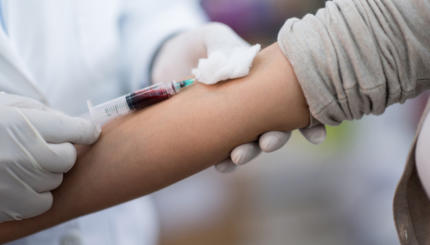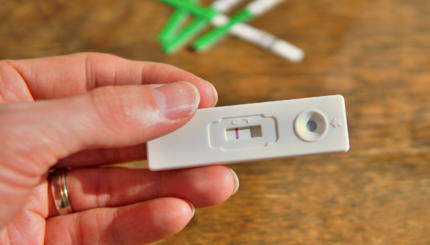Estimates are that at least one in three Jews worldwide are carriers for at least one of the genetic diseases common in the Jewish population. For the most common of those diseases, Gaucher disease, an estimated one in 15 Ashkenazi Jews carries the genetic mutation for the disease. Carriers do not themselves suffer from the disease — they merely carry the gene that can cause it. If two carriers for any particular genetic disease have children together, each child has a 25 percent risk of developing the disease and a 50 percent of being a carrier of the disease.
Are Sephardic Jews also at risk for particular diseases?
Among the common Jewish genetic diseases are a number that also affect or Jewish communities. On the whole, the risks of particular diseases for Sephardic Jews vary with country of origin. The carrier rate for spinal muscular atrophy, for example, is one in 10 among Jews of Egyptian descent. For Wolman Disease, the rate is one in 45 for Jews of Persian or Bukharian descent. The Jewish Genetic Disease Consortium recommends a screening panel of 16 diseases with increased prevalence among Sephardic Jews. And the Israeli Ministry of Health website recommends specific disease testing depending on the particular community of origin.
What about interfaith couples?
Anyone with at least one Jewish grandparent is at heightened risk of being a carrier of a Jewish genetic disease. Though these diseases are more prevalent among those with Jewish ancestry, they do also exist in the general population. Experts suggest that the Jewish partner in an interfaith couple be tested first. If the Jewish partner is found to be a carrier for a specific disease, then the non-Jewish partner should be tested for that disease.
What if I’m a carrier?
There are multiple options available to couples that discover both partners are carriers for a particular disease. Couples can decide to conceive a child and test the fetus early in the pregnancy. If the fetus tests positive, the couple can then decide whether to terminate the pregnancy or not. Another option is in-vitro fertilization, in which eggs are fertilized outside the body and only embryos that test negative for the disease are implanted. Some couples may also choose to use donated eggs or sperm from a non-carrier donor, to adopt, or not to have children at all.
With your help, My Jewish Learning can provide endless opportunities for learning, connection and discovery.
Are there any ethical or Jewish legal concerns involved in genetic screening?
In the view of Jewish law, or halacha, some of the remedies offered to couples in which both partners test positive for a particular disease are problematic. Abortion is generally permitted only in cases where the life of the mother is threatened, something typically not the case with genetic diseases. Affected fetuses can normally be carried to term with no threat to the mother’s health.
Both the Conservative and Reform movements have ruled that termination of pregnancy is permitted in cases where prenatal testing determines that a fetus has major defects that would preclude a normal life and where the psychological well-being of the mother would be substantially impacted. Orthodox opinion rejects termination as an option except in cases where the health of the mother is jeopardized. As a result, Orthodox rabbis generally prohibit prenatal fetal testing since it offers no remedy short of abortion if a condition is detected.
Given the lack of options, Orthodox communities place significant emphasis on genetic testing prior to marriage. This is often done confidentially due to a belief in the Orthodox community that there is a stigma attached to individuals who are found to be carriers. One organization, Dor Yeshorim, conducts widespread confidential genetic testing in the Orthodox community. Couples considering marriage can submit their names to the organization, which will report back if they are genetically compatible or not without specifying which partner is a carrier.
Are breast and ovarian cancers Jewish genetic diseases?
Roughly 1 in 40 Ashkenazi Jews are carriers of the BRCA genetic mutation, which increases the risk of breast and ovarian cancer. Though this increased risk is genetically transmitted, BRCA is not typically included among the disorders included in the standard testing panels for Jewish genetic diseases. Individuals with a family history of breast or ovarian cancer are encouraged to consider separate testing for the BRCA mutations.



